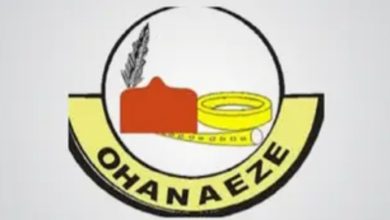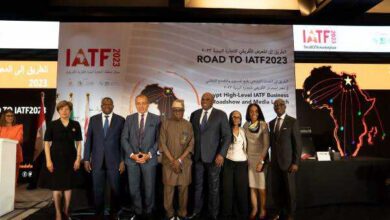EDITORIAL: Challenges facing 2023 Elections
Further delay is inimical to the 2023 elections which are just one year from now. The Presidency should know that any further delay in signing the electoral bill is capable of triggering an uproar in the country which could eventually lead to protests by civil society groups and other stakeholders.
Nigerians await the 2023 general elections scheduled to hold across the country to fill different elective positions with deep anxiety. The Presidency is up for election after eight years of President Muhammadu Buhari in the saddle. Most governorship positions in the states are also up for elections. Opinions are split on the performance of the APC-led government. Arguably, the verdict is that Nigeria is worse off than it was in 2015 in terms of security, the economy, national cohesion and some other indices.
Once the President ruled out the possibility of any unconstitutional tenure elongation, the field became clear for different politicians to indicate interest in vying for the highest office in the land. Political jostling has started. However, as the 2023 elections approach, there are fears, challenges and impediments towards a successful conduct of the exercise.
The major challenge facing the 2023 elections is the delay in the passage of the Electoral Bill. Last year, Buhari refused to sign the bill after it was passed by both chambers of the National Assembly. In the bill, the lawmakers had prescribed direct primaries for parties to choose their candidates for the elections.
However, the President insisted that direct primaries method was undemocratic. He argued that political parties should not be restricted to one method of choosing their candidates. Moreover, he felt that direct primaries would severely spike the cost of elections. He, therefore, returned the bill to the National Assembly with a letter recommending that indirect primaries and consensus should be added to the ways of nominating candidates by political parties.
To the dismay of most Nigerians, who supported the direct primaries, the lawmakers bowed to the wishes of the President and amended the Electoral Bill accordingly. The bill has since been sent to the President again for his assent. The irony of it all is that the president seemingly emerged as the candidate of his party through direct primaries. When the Speaker of the House of Representatives, Rt. Hon. Femi Gbajabiamila, met him soon after the passage of the first bill by the National Assembly, the impression was created that the executive and the legislature were on the same page.
But the governors, who were seriously against the bill, mounted pressure on the Presidency to toe their line. The governors wanted the retention of indirect primaries and consensus. The reason is not far-fetched. They are the ones who draw up the list of candidates for the primaries and manipulate the use of consensus.
They did not want to let go their vicious grip on the choosing of candidates in their states. On the other hand, the legislators wanted to free themselves and their parties from the strangulating hold of the governors through the primaries. Now that the Presidency has had its way, the President should urgently honour his pledge to Nigerians that he would sign the bill as soon as his recommendations were effected.
Read Also: Bwacha: Interrogating the Gale of Defection
Further delay is inimical to the 2023 elections which are just one year from now. The Presidency should know that any further delay in signing the electoral bill is capable of triggering an uproar in the country which could eventually lead to protests by civil society groups and other stakeholders.
Another challenge facing the 2023 general elections is insecurity. Currently, many parts of the country are insecure. Arms proliferation and the emergence of different militant groups have created a season of panic and fear. Kidnapping, killings and other forms of violence are regular in Nigeria’s newsreel every day. It remains to be seen how elections will hold in the South-East and parts of the North- West, North-East and North-Central.
The Federal Government appears to be helpless in the face of a crippling insurgency. It seems to have resigned itself to fate. Indeed, the greatest challenge facing the 2023 general elections is insecurity. The outlawed Indigenous Peoples of Biafra (IPOB), for instance, has threatened that it would disrupt elections in the South-East. Boko Haram and other terrorist groups in the North are also certainly going to create an atmosphere not conducive for elections in areas where they operate. The security situation in the South-West is not any better. There are threats from some groups that unless Sunday Igboho’s case is resolved, there will be no elections in the region.
It remains to be seen if the Nigerian security forces will rise to the occasion and make all parts of the country safe enough for all Nigerians to participate uninterrupted in the elections.
Zoning of elective positions is another major problem facing the 2023 elections. It is intriguing that the two major parties, the People Democratic Party, PDP, and All Progressives Congress (APC), have not decided on the zoning formula for the office of the president till now. Zoning of the presidential slot will go a long way to determine how the election of 2023 will pan out. The election is a year away and it is worrisome that political parties are yet to settle this serious issue. Perhaps, they are weighing their options knowing that a wrong zoning formula could affect their success in the elections.
The challenges are not insurmountable. The nation needs the will and determination to take the right steps both in tackling the menace of terrorists and settling contentious issues within the polity. The federal government owes Nigerians a peaceful environment as a prelude to successful general elections




